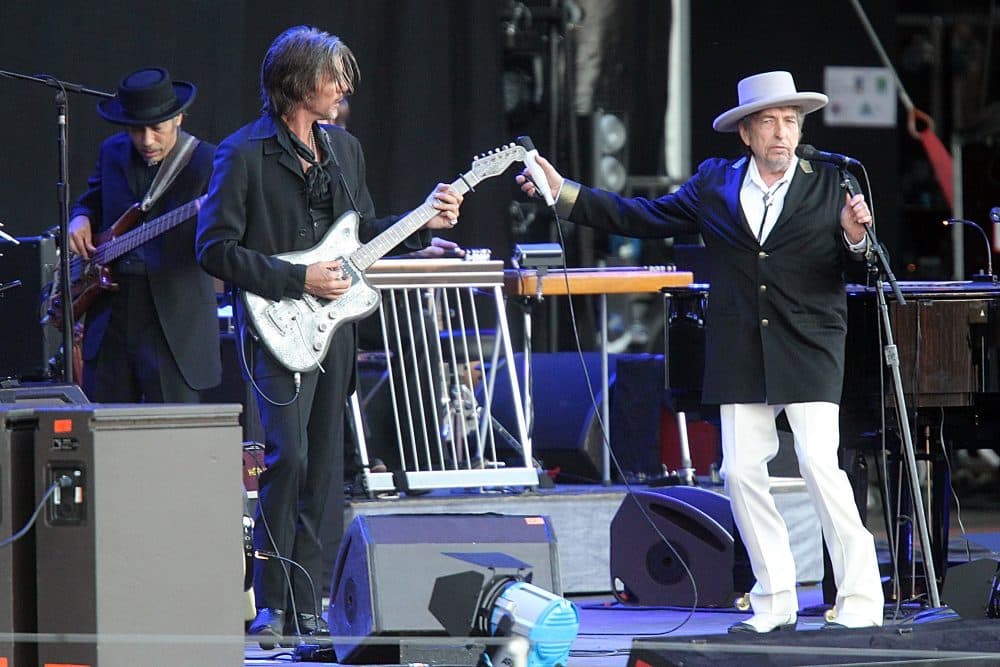Advertisement
COMMENTARY
Bob Dylan On The JFK Assassination And Today — A World Gone Wrong Revisited

The man certainly knows how to drop a bomb.
From literally electrifying folk music to embracing born-again Christianity, reinventing an American songbook where Woody Guthrie and Lead Belly shake hands with Frank Sinatra, and finally embracing his Nobel Prize for Literature while becoming music’s eminence grise, Bob Dylan still knows how to stop people in their tracks, even at 78.
He did it again Thursday night following the release of “Murder Most Foul” — with a written introduction on bobdylan.com that says, “Greetings to my fans and followers with gratitude for all your support and loyalty across the years. This is an unreleased song we recorded a while back that you might find interesting. Stay safe, stay observant and may God be with you.” From those words, you might be expecting some sounds of comfort in a time of great social and political distress.
Uh, no.
The song, his first new one in eight years, is a nearly 17-minute, associative journey that goes back and forth between the assassination of John F. Kennedy in 1963 and an elegy for the “World Gone Wrong,” to quote an album title, that followed in its aftermath and continues through today. Is the virus, like Camus’ “The Plague,” part of that descent into corrosiveness? Is Donald Trump?
You might make that assumption when Dylan sings, “Where is the truth, where did it go?”
Let’s start at the beginning with the assassination itself. You’d be forgiven for a bucketful of trepidation during the opening stanza.
He was led to the slaughter like a sacrificial lamb
He said, ‘Wait a minute boys, you know who I am?’
‘Course we do, we know who you are’
Then they blew off his head while he was still in the car.
All right then. So my first thought was that this is going to be an over-romanticized song that like “Joey” — about the murder of mobster Joey Gallo — and “Roll On, John” — his ode to a fellow member of the pantheon, John Lennon — would be one of his romanticized conspiracy theories.
But give “Murder Most Foul” more time. In all these songs, Dylan is more interested in the myth of the men and the myth of America. All three were killed by a mysterious “they,” not by crazed gunmen in the case of JFK and Lennon and not rival gang members in the case of Gallo.
So who’s "they," this mysterious evil force? In the case of JFK, Dylan seemingly subscribes to the theory that right-wing forces were at work who would be more comfortable with Lyndon Johnson, a president who would not pull out of Vietnam but prosecute the war more fully.
From that literal beginning, Dylan delivers a poet’s history of the United States. He admired Howard Zinn’s “A People’s History of the United States” and contributed a song to the soundtrack; he also admired conservative Barry Goldwater. Dylan left ideology behind over 50 years ago. “Murder Most Foul” follows more in the path of Walt Whitman and Allen Ginsberg, creating a swirling, mystical collage of people and events, from Wolfman Jack and Barack Obama to Woodstock and Altamont.
It’s the conceit of being played into another realm by Bud Powell, the Animals, Etta James, that can bring you to tears. It’s a place where beauty and sadness walk hand in hand.
What it all means is subject to interpretation. But from the spare accompaniment that focuses on piano, violin, light percussion and Dylan’s unchanging vocal delivery, it’s clear Dylan’s song is a sad one. The Beatles and Woodstock begin his litany of a post-JFK pastiche that he or the president is witnessing from on high. It's a world in “slow decay.”
I’m going down to the crossroads, going to flag a ride
The place where faith, hope and charity died
Even more pointedly, Dylan declares:
The day that they killed him someone said to me ‘Son,
The age of the Antichrist has just only begun.'
The song takes a stunning turn at the 10-minute mark, when it seems the dead president in his Cadillac hearse calls out to Wolfman Jack to play him — and Marilyn Monroe, among others — into the afterlife. This is certainly closer to Dylan’s playlist than Kennedy’s, but no matter. It’s the conceit of being played into another realm by Bud Powell, the Animals, Etta James, et al. that can bring you to tears. It’s a place where beauty and sadness walk hand in hand.
Which brings us back to today. Why now, in the midst of this virus? Is it a song of despair?
I don’t see it that way. It’s a song that offers no sentimental way out of where we find ourselves today, that’s for sure, and he’s certainly offering us no path to redemption, as he did in his born-again phase in the ‘80s. There is a consistency, though, with the entirety of his work. The “they” he’s been railing at are all the soul-crushing purveyors of a political and cultural class — the masters of war, the bourgeois denizens outside of Desolation Row, the materialists he railed against in his Christian songs, straight through to the mysterious “they” of “Murder Most Foul.”
In my mind, Dylan is saying that the only way to deal with that enemy is to look them straight in the eye. Can we recapture the myth of JFK? “Murder Most Foul” doesn’t offer that hope. The takeaway, though, at least for me, is that it’s worth a try.



